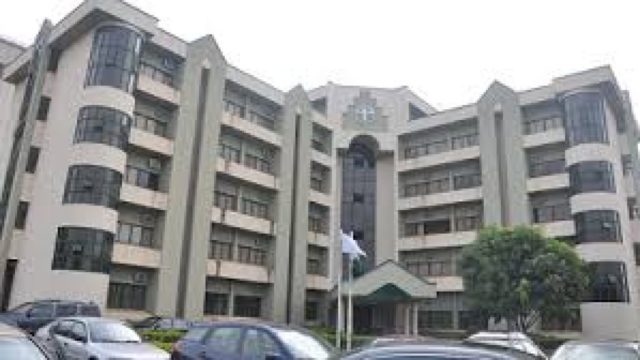The National Human Rights Commission (NHRC) on security and peace, experts at a training programme said persistent crises and hates among Nigerians are evidence of quasi post-conflict reconciliation.
Speaking in Yola, Adamawa State at a two-day training organised for journalists, the experts explained that reconciliation, reintegration, and transitional justice are very important mechanisms for healing societies that have gone through conflicts like that of the Nigerian civil war, and Boko Haram, which is currently ravaging the north-east.
According to the Director, Centre for Peace and Security Studies at the Adamawa State University of Technology, Dr Jude Momodu, only true reconciliation, reintegration and transitional justice will unite the country and lessen hatred between victims and perpetrators of conflicts.
He explained that such would also address the root causes of conflicts.
European Union (EU) and UNDP funded the project termed: ‘Promoting Reconciliation, Reintegration, and Transitional Justice in Borno, Adamawa and Yobe states.
The project aimed at reabsorbing repentant combatants in the Northeast through non-judicial instruments, such as transitional mechanisms.
Dr. Momodu emphasised the importance of the community’s inclusiveness in the project to achieve the desired outcomes.
Another scholar, Dr. Saheed Owonikoko, a security and peace expert, also urged the media to support the promotion of reconciliation, reintegration and transitional justice in the Northeast to properly heal conflict wounds.
In the paper titled, ‘Building Community Confidence and Resilience in the Process of Reception and Reintegration of De-radicalised ex-Boko Haram and Other Returnees,’ Dr. Owonikoko frowned at the situation where the ongoing de-radicalisation process was handled by the military.
He stated that it was not ideal for soldiers to be fighting Boko Haram and at the same time be coordinating the de-radicalisation, which is supposed to be a civil process that ought to be handled by civilian experts.
The Executive Secretary of NHRC, Tony Ojukwu, said the pilot project launched was to initiate a community-led process for nonjudicial transitional justice and reconciliation as a foundation for reintegration and post-conflict recovery in the north-east.
Ojukwu, who was represented by Mr Hilary Ogbonna, the Project Coordinator, also explained that transitional justice would aid in accelerating the process of healing and offer victims, perpetrators and community opportunities of healing the wound through the non-judicial mechanism.
Ojukwu, however, noted that the success of the post-conflict programmes would depend on strategic advocacy and communication.
“The media plays a crucial role in information dissemination, awareness creation and the shaping of public opinions.
“In recognition of this important role, the media is, therefore, an essential partner in promoting transitional justice and reconciliation in the north-east.
“No effort should be spared in building the capacity of media professionals to embrace and perform this role effectively,” Ojukwu said.
The training was aimed at, among others, building the capacity of media professionals on the concept of transitional justice and its imperatives for Post-Conflict in the north-east as well as creating a network of media professionals on transitional justice.
The Solicitor-General of Adamawa state, Mr Samuel Yaumande and the Permanent Secretary, Adamawa Ministry of Reconstruction, Rehabilitation, Reintegration and Humanitarian Services, Mrs Aishatu Umar, described the project as timely as displaced persons return to their ancestral land.
Other papers presented on the first day of the training included “Role of Media in Peace Building, Reconciliation and Transitional Justice in Post-Conflict Societies in West Africa” and “Transitional Justice: Meaning and Approaches”.
Other is “The Role of the Media in Promoting people-centred approaches to reconciliation and reintegration in post-conflict North East Nigeria.”
The training, which is a pilot project as part of the training activities, was a visit of the journalists to the internally displaced camp at Malkohi at Yola south, which had six ex-combatants accepted and now live with the people.
The village head of Malkohi (the community IDC), Abubakar Gidado, said they have lived with the repentant Boko Haram for the past nine years without challenges.
He urged other communities to embrace them for peace.
He further explained that the government put up the community’s Internally Displaced Camp, but the community provides land to the displaced persons for farming.

